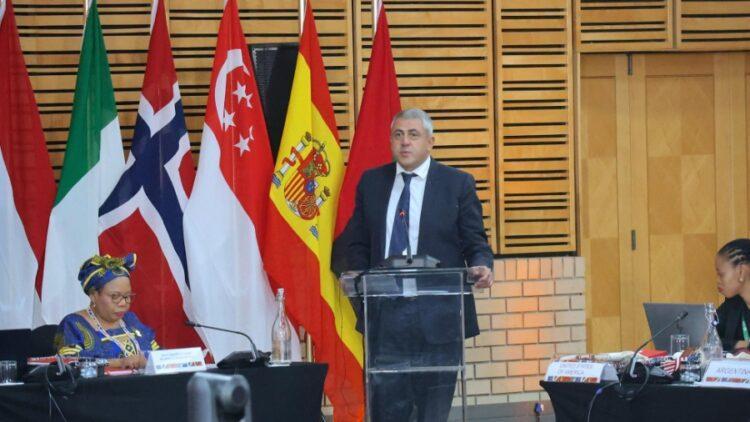Africa-Press – Tanzania. YESTERDAY was The World Tourism Day that is marked on such date each year.
Tourism is often highlighted for its role in economic development. But it is more than that. It is a catalyst for social progress, delivering education, employment and creating new opportunities for all.
However, the sector demands more than growth alone. To unlock these benefits, a deliberate and inclusive approach is essential, one that places sustainability, resilience and social equity at the core of tourism development and decisionmaking.
World Tourism Day 2025, under the theme ‘Tourism and Sustainable Transformation’, highlights tourism’s transformative potential as an agent of positive change.
Key points to consider for a more sustainable world Effective governance and people-centric planning: Investment in education and skills, especially for youth, women and communities at risk of exclusion is crucial.
Innovation and responsible entrepreneurship: Digitalisation and innovative business models present immense opportunities. Thus, supporting MSMEs and startups, can significantly contribute to inclusive prosperity and sustainable economic diversification.
Prioritise sustainable investments: It includes long-term community benefits, resilience building and climate action. Responsible stewardship of natural resources is another core element.
Tourism stakeholders must work on reducing emissions, conserving biodiversity and investing in resilient infrastructure to safeguard our natural resources and ecosystems and ensure resource availability for future generations.
The United Nations (UN) Tourism Secretary General Zurab Pololikashvili stresses: “Strengthening multilateralism through tourism will deliver results in socio-economic inclusion, sustainable development, peace and understanding.”
Addressing G20 Tourism Ministers, he commended the South African Presidency’s focus on inclusion and sustainability.
“More than a motto, the theme for South Africa’s G20 Presidency ‘solidarity, equality, sustainability’, reminds us that Equality and Sustainability can only be achieved through targeted policies, unified efforts and mutual support among countries – a recognition that in an interconnected world, the challenges faced by one country can have ripple effects globally, “he said.
The G20 Tourism Ministers Meeting focused on the four priorities of South Africa’s Presidency: Enhancing travel and tourism startups and MSMEs through digital innovations, tourism financing and Investment to enhance equality and sustainable development.
Also on cards is air connectivity for seamless travel, enhanced resilience for inclusive, sustainable tourism development.
As international tourism continues to growth – international tourist arrivals increased 5 per cent in the first half of 2025 according to the latest World Tourism Barometer – Pololikashvili reaffirms the critical importance of progressing digital transformation, financing for development, investment and resilient ecosystems in tourism, stressing that there will be no resilience without sustainability.
He calls for supporting innovation and stressed that emerging technologies can transform tourism MSMEs, which are the backbone of tourism, but only with adequate financing and programmes to close the digital divide and promote inclusion.
Tourism vital for developing countries
Focusing on financing for development, he noted that though “for many developing countries, including Least Developed Countries and Small Island Developing States, tourism is a major source of employment, foreign exchange and tax revenues.
Yet, the sector continues to be overlooked as a tool for development, with the total Official Development Assistance disbursements for tourism remaining below 0.11 per cent of total ODA.”
Closing, Pololikashvili highlights South Africa’s G20 Presidency as a show of the continent’s leadership in the global agenda. He recalled that Africa is home to 19 per cent of the world’s population, with 70 per cent of sub-Saharan Africa under the age of 30.
“The opportunities the continent offers in tourism are many” he said and “unlocking tourism investment and development for jobs and inclusion is a core priority of the UN Tourism Agenda for Africa,” he said.
Since 1980, the United Nations World Tourism Organisation has celebrated World Tourism Day as international observances on September 27. This date was chosen as on that day in 1970, the Statutes of the UNWTO were adopted.
The adoption of these Statutes is considered a milestone in global tourism. [1] The purpose of this day is to raise awareness on the role of tourism within the international community and to demonstrate how it affects social, cultural, political and economic values worldwide.
At its Twelfth Session in Istanbul, Turkey, in October 1997, the UNWTO General Assembly decided to designate a host country each year to act as the Organisation’s partner in the celebration of World Tourism Day.
At its Fifteenth Session in Beijing, China, in October 2003, the Assembly decided the following geographic order to be followed for World Tourism Day celebrations: 2006 in Europe; 2007 in South Asia; 2008 in the Americas; 2009 in Africa and 2011 in the Middle East.
The late Ignatius Amaduwa Atigbi, a Nigerian national, was the one who proposed the idea of marking September 27 of every year as World Tourism Day. He was finally recognised for his contribution in 2009. The colour of World Tourism Day is Blue.
World Tourism Day’s primary objective is to highlight the significance of tourism on a global scale. Apart from the economic impact that tourism brings to a country, it also plays a role in influencing the social, political and cultural environment of the countries.
By celebrating this day, nations seek to emphasise that tourism is not just about revenue; it is also about fostering connections, understanding diverse cultures and promoting sustainable practices.
For More News And Analysis About Tanzania Follow Africa-Press







